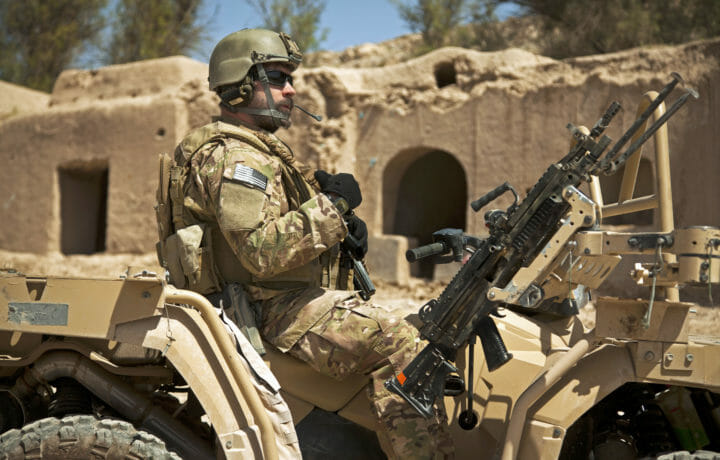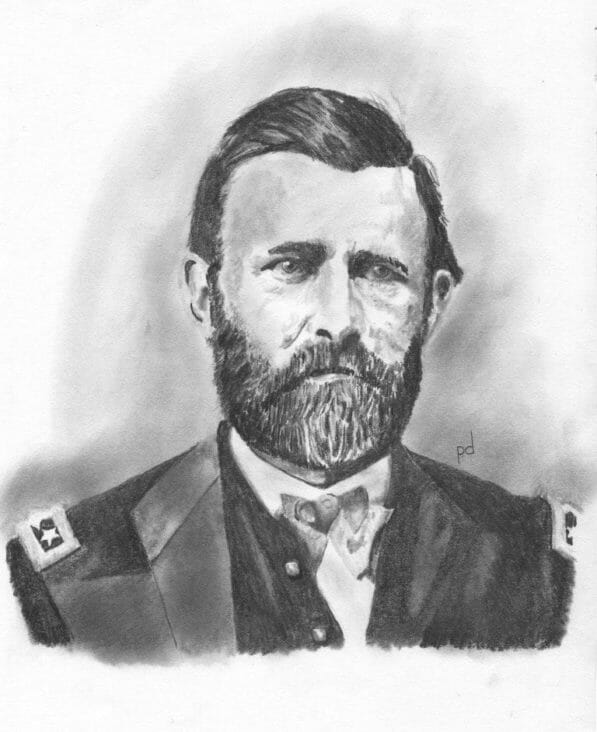War is war is war – no matter the time or place or the reasons why the war began. To sustain a war, each side must get their fighters to hate the other side. However, peace is also peace in every clime and age. To make a durable peace, a true peace, leaders must cause their fighters to forgive each other.
I have worked on the Afghanistan peace process since the summer of 2009 when President Karzai raised the idea of a political solution to the war to General McChrystal. I have studied how wars end around the globe as a soldier and peacebuilder. If Afghans are to achieve a real peace that lasts, they must do what other nations have done before—but better. Afghan leaders on both sides of the conflict must get their fighters to stop fighting and to move forward in forgiveness and unity, towards peace for their grandchildren.
It seems mad to think a soldier who is taught to despise his enemy, hating their every fiber so much they would kill them – can simply turn off those feelings and offer the hand of peace to their former enemy. But it happens time and again. It happens in professional armies and in unorganized militias. It will need to happen again in Afghanistan.
The Afghans can use lessons from the United States civil war, a war equally as bloody and vengeful with brothers, uncles, fathers, and cousins killing each other. Upfront we must acknowledge that the US is still in the reconciliation phase of the war whose main driver was slavery and human equality. Don’t misunderstand my intentions, the US did many things poorly after their civil war. However, history is not just a list of positive lessons; it is also a record of mistakes to be avoided.
Unconditional Surrender of “Traitors”
General Ulysses S. Grant was known for demanding unconditional surrender from his foes when he gained the upper hand. When his enemies came to him seeking peace after battles, they expected to have no say in the terms of surrender. That changed two years before the war ended at Vicksburg, MS. Grant calculated that at this point in the war, deep inside the Southern lines of battle, that he could do more with a large paroled and basically pardoned enemy force than 30,000 prisoners being paraded across the nation. As his men wandered among the surrendered men handing out bits of food to the starving southern losers of the battle, Grant reaffirmed his terms to the enemy:
- Turn in rifles and heavy weapons.
- Keep your sidearms (and your horses) so you can go plant a crop.
- Release all of your slaves.
- Go home on parole with a promise not to fight again.
The impacts of reintegration and demobilizing (often dubbed today DDR) were a critical start to the healing process of the war’s end that would soon come. These half-starving men would go to their hometowns in defeat and be seen by the Southern people. Thirty thousand men were taken off the battlefield. The beginning of freeing the slaves began in bulk and was visible to all. Finally, with this small gift of kindness, Grant hoped to avoid creating an insurgent militia.
Grant would move East to eventually face Robert E. Lee and his highly capable army. After a few battles, Lee would remind his officers that Grant was not the retreating type. The days of Lee’s Army moving at will against their enemy were over. The invincibility of Grant began to replace the idea of the invincibility of Lee. The Afghan National Defense and Security Forces (ANDSF) must sustain the mantle of being undefeatable as the government secures the monopoly of violent forces that work for the Afghan people. The ANDSF have already adopted Grant’s mantra of always moving forward until a task is complete.
As reconciliation moves forward after a peace agreement is signed, the ANDSF must:
- Be respectful of all people.
- Integrate the new security structures into the security system.
- Welcome old enemies back into society with vetting and without prejudice.
The Role of Political Leaders matters
Mere weeks after Grant secured Lee’s generous terms of surrender, President Lincoln was assassinated by an angry southerner who wanted to cut the heads off the US government.
Surrender your arms, return home, keep your horses for farming, and promise not to take up arms against the Government of the United States.
-Grant’s generous terms of surrender to Lee and his entire Army
Lincoln had been Grant’s biggest supporter for a victory that led to national unity, not a southern insurgency. Grant would luckily be able to carry on the ideas of Lincoln in rebuilding the home of his enemies. As the General of the Armies, Grant could counter the bitter nature of the Vice President turned President, named Johnson. Andrew Johnson was an un-elected President from the Democratic party and had no interest in protecting human rights in the South. He would later be defeated by Grant in the next presidential contest.
“Lincoln’s death is a calamity for the nation, and especially for the South”
-General Grant
Grant led the military reconstruction effort in the South through five military districts (commands). It was a major federal government project similar in some ways to the “Marshall Plan” to rebuild Europe after WWII, which was also driven by a popular American general.
The aims of reconstruction were many but they focused on*:
- Fixing the Southern infrastructure damaged by war.
- Integrating the freed slaves into American society.
- Forging a justice system that could support equality for all Americans, especially the former slaves.
The former enemies of the United States were very lucky to have a man with a forgiving heart leading the reconstruction efforts. He was also the best champion of civil rights that the new free men could hope for. While political leaders argued over policy, Grant executed his vision for the South rejoining the Union as friends.
Conflict Resolution for Afghanistan
The Taliban fighters and their leaders must see that their best chance for a normal life lies in rejoining society and learning to live by the rules of it. The kindness of the peace process being extended by the government will likely be a deal that the Taliban won’t expect. They would be foolish to think they can start to fight against the larger Afghan society again and get better terms. I suspect the terms of the Afghan government will match General Grant’s and President Lincoln’s views on conflict resolution. The Taliban will have to prove to the Afghan society members around them every day that peace is better than war and that they will choose a life of peace. The Taliban will likely never be forgiven in their lifetime, but they should gladly take a parole back into society and a chance to live a fairly normal life.
Civil society and families of the fallen and wounded all have a role to play in moving Afghanistan towards unity and forgiveness. For them, it will likely be harder than for the combatants on both sides. Without a martial background, it is often difficult for civilians in a nation to accept peace in place of justice, or even revenge. Soldiers know the horror of war in a way no one else can. Soldiers are less likely to put peace at risk by failing to forgive their enemy. Civilians must be persuaded to accept a permanent pain in their hearts to ensure that Afghanistan does not slip back into a war that would claim more of their relatives.
Grant would rise to the Presidency after a failed Johnson administration and continue to work to unify his beloved nation. Like the Afghan government today, he was faced with correcting the flaws of previous efforts by Johnson. The Afghan government will have to adjust many of the well-intentioned, and ill-intentioned actions of those involved in Afghanistan since the 1970s. That is the starting point after a peace agreement is signed.
Grant explained his Presidential task in March of 1869 as a desire to rid the nation of hatred, of prejudice, and of sectional pride. Those tasks are not unlike those facing Afghans today. Grant wanted to build a happy union. In the South, that meant improvements in education, voting, the economy, adult literacy, and lifting the social status of freed slaves.
Grant as President had to face violence from better organized militias and vigilantes fighting against the free African-Americans in the South. These violent ideas were fueled by the press and the Democratic Party. He would use intelligence operations, law enforcement, and even martial law and military operations as needed to suppress these violent men that clung to the old ways. Again, this is not unlike what Afghans will face. Afghans need to be ready to pivot if a powerful force, such as the KKK, rises in Afghanistan. If different groups arise like they did post US Civil War, Afghans will need to adjust their laws as the US Congress did and even create new government organizations, like Grant and Congress did with the Department of Justice.
For many people, reconciliation will be more difficult than war. I read the social media posts and reactions to the ideas of peace and forgiveness of old wounds. Afghans are still angry for injuries over 40 years old now. Learn from Grant and be willing to risk almost everything to stop Afghanistan from spiraling back into a civil war or another war against Pakistani proxies.
The Americans across the nation soon tired of the ideas of reconstruction and reconciliation and defunded them by electing more Democrats to office. In many ways, the idea of reconciliation and equal rights would end with the Grant presidency. His giant heart could not change the culture nor beat back the power of Washington elites. It will take a special generation of Afghans to overcome the inertia of violence, ethnic pride, and calls for revenge not justice.
Epilogue
Grant would receive a letter from a paroled Confederate solider weeks before he died from cancer. That former enemy, who once hated and killed Northern Union troops in battle wrote to thank Grant and to wish him and his family well. He recalled the impact of the terms of surrender that Grant offered to Lee’s army. Lee led the most powerful and destructive army in the South, if not the war. Yet Grant offered terms of peace that might actually create peace. Soldiers are trained to hate their enemy, but there is and always will be a code among honorable combatants that when peace comes, it must not be squandered by revenge and hatred over past deeds. The world now watches to see if Afghans can get reconciliation right and sustain a durable peace for their grandchildren.
*The summary of the reconstruction program I modified is based on comments from Christy Coleman at the American Civil War Museum. Her insights are a great addition to the 2020 History Channel Grant documentary.
Image of U.S. Grant by artist Patrick Dowden, Coast Guard Commander Retired





